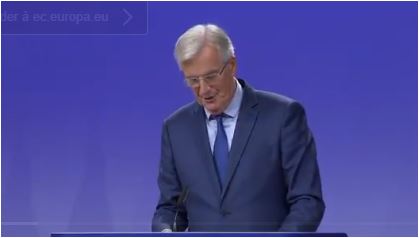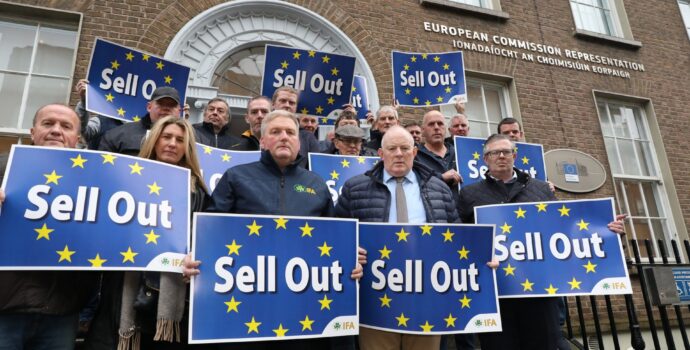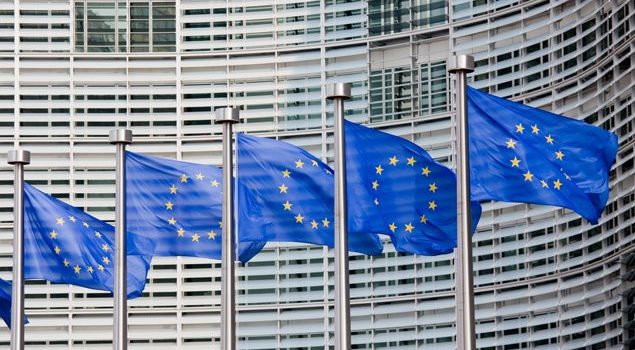Brexit: Sixth Round of Article 50 Negotations over – 10 November

[vc_row][vc_column][vc_column_text]
Speech by Michel Barnier following the sixth round of Article 50 negotiations with the United KingdomBrussels, 10 November 2017 Ladies and gentlemen, Thank you for the interest you show in this negotiation. Do not expect from us today, at this stage, announcements or decisions. The discussions over the past days – in between the two European Councils – are a moment of deepening, clarification and technical work. We are determined to reach a deal on the orderly withdrawal of the United Kingdom from the European Union, in view of the UK’s decision to leave. This is our absolute priority – as well as mine and my team’s – in view of the European Council on 14 and 15 December. The decisions and guidelines of the European Council, particularly last month, and the resolutions of the European Parliament guide me every day in this work. When you read these resolutions and conclusions, you see again that only sufficient progress, i.e. sincere and real progress, on the three key areas of this negotiation will allow us to open the second phase of the negotiations. These three subjects are – I repeat – inseparable. I would like to repeat that in this extraordinary negotiation, which is extraordinarily complex, that we are not demanding concessions from the United Kingdom, and we do not intend on issuing concessions either. We work on the basis of fact, and law, and on precise, reciprocal commitments. And we should – and we wish to – create certainty, especially legal certainty, where Brexit has created uncertainty and a lot of worry. Ladies and gentlemen, On citizens’ rights, we are making some progress, although we need to work further on a number of points. The UK wants to put in place administrative procedures through which EU citizens can obtain “settled status”. The EU needed reassurances on how such a system would work: it should be simple to use, and low cost. We also needed reassurance on how people, when rejected, can appeal effectively. The UK has now provided useful clarifications that are a good basis for further work. We also had encouraging discussions on direct effect of the withdrawal agreement. This is a key point to guarantee citizens’ rights. There are still a number of points that need more work: o family reunification; o the right to export social security benefits; o and the role of the European Court of justice in guaranteeing consistent application of case law in the UK and in the EU. These three issues are important for people, as the European Parliament has also stressed. We will continue our dialogue on Ireland and Northern Ireland. We have to ensure a common reading, the same reading, of the conditions, consequences and implications of Brexit on the Good Friday Agreement and the Common Travel Area. This should lead us to identify the technical and regulatory solutions necessary to prevent a hard border, while preserving the integrity of the Single Market. As David and I told you last time, the unique situation on the island of Ireland requires specific solutions. Ladies and gentlemen, On the financial settlement, we must now work on the precise translation of the commitments made by Prime Minister May in her Florence speech. I repeat that this is an essential condition to reach sufficient progress in December. Once again, I repeat that this – as in any separation – is about settling the accounts. Ladies and gentlemen, The United Kingdom decided to leave the European Union over 500 days ago. And it will leave the Union on 29 March 2019 at midnight, Brussels time. And to reach our common goal – that of organising an orderly withdrawal with an agremeent – we are going to have to work intensively over the coming weeks, before the next European Council. Thank you. *** VERSION AS DELIVERED *** |
[/vc_column_text][/vc_column][/vc_row][vc_row][vc_column][vc_tta_accordion color=”mulled-wine” active_section=”666″ collapsible_all=”true”][vc_tta_section title=”DAVID DAVIES REMARKS” tab_id=”1510561882959-18f91341-9abd”][vc_column_text]
David Davis’ closing remarks after EU exit negotiations on 9-10 November
Thank you, Michel.
Last month I welcomed Michel’s recognition of the new dynamic in the talks created by the Prime Minister’s Florence speech.
That speech set out a clear and pragmatic approach to securing an agreement that works for both the United Kingdom and the European Union.
One that heralds a new era of cooperation and partnership between us.
During the October discussions we isolated the key remaining issues on Citizens’ Rights, Northern Ireland, and the Financial Settlement as Michel has just told you.
So this week our focus has been on finding solutions to those issues.
It was, of course, inevitable that our discussions would narrow to a few outstanding – albeit important – issues.
So we have continued to work through these remaining issues – consolidating the progress we’ve made since June and exploring options for reaching agreement.
And now is the time for both sides to move together to seek solutions.
This is a serious business.
If we are to find a way forward it will require flexibility and pragmatism from both sides as i think Michel also stressed.
We have been clear with the EU that we are willing to engage in discussions in a flexible and constructive way to reach the progress needed.
I will now address each issue in turn.
Northern Ireland
On Northern Ireland we have continued to have good, technical discussions.
We have drafted joint principles on the continuation of the Common Travel Area and associated rights.
We have continued to explore how best we preserve North-South cooperation.
And we are drafting joint principles and commitments which will guide the solutions drawn up in the second phase.
We have also had frank discussions about some of the big challenges around the border.
We remain firmly committed to avoiding any physical infrastructure and we have been clear about that this week.
These discussions will of course continue in the run-up to the December Council but let’s be under no illusion.
We will only be able to conclude them finally in the context of the future relationship.
We respect the European Union desire to protect the legal order of the single market and Customs Union.
But that cannot come at cost to the constitutional and economic integrity of the United Kingdom.
As I have said before, we recognise the need for specific solutions for the unique circumstances of Northern Ireland.
But let me be clear.
This cannot amount to creating a new border inside our United Kingdom.
Now in this process, we are resolutely committed to upholding the Belfast/Good Friday Agreement, in all its parts.
We need to approach the challenging issues that arise as part of this process in a spirit of pragmatism, creativity and with a high degree of political sensitivity.
We owe it to the people of Northern Ireland and of Ireland to do so.
Citizens’ Rights
We have continued to make progress on Citizen’s Rights. We are now seeking political solutions to the last outstanding issues on both sides.
Earlier this week as Michel said, we published a detailed note setting out our new administrative procedures for European Union citizens seeking settled status in the UK.
This delivers on a commitment I made in the last round of negotiations and discussed in the press conference too.
We listened carefully to the concerns raised about this process and we’ve responded.
As our paper sets out, the new procedures will be as streamlined and straight-forward as possible and will be based on simple, transparent criteria laid out in the Withdrawal Agreement.
This week, we have discussed options for resolving issues ranging from family reunification to the export of benefits.
For example, we have been clear that we are willing to consider what further reassurance we can give to existing families – even if they are not currently living together in the UK
There are a few areas where our citizens need to see further progress and movement from the European Union.
On the mutual recognition of professional qualifications, the European Union’s approach remains more narrow than we would like.
We believe it is only right that people holding qualifications or in the process of acquiring them should be allowed to continue or begin their careers as they do now.
We want to protect their livelihoods in line with our broader approach that people should be able to continue living their lives as they do now.
On voting rights, we are disappointed that the EU has been unwilling so far to include this in the scope of the Withdrawal Agreement. As citizens may lose a right which they currently enjoy.
However, if it does fall out of scope, we will discuss this issue bilaterally with Member States.
Finally, this week we have sought to give further clarity on our commitment to incorporate the agreement on Citizen’s Rights into UK law.
This will ensure that EU citizens in the UK can directly enforce their rights in UK courts – providing certainty and clarity in the long term.
We have made clear that, over time, our courts can take account of the rulings of the European Court of Justice in this area, to help ensure consistent interpretation.
But let me be clear, while we share the same aims, it remains a key priority for the United Kingdom, as we leave the European Union, to preserve the sovereignty of its courts.
Financial Settlement
On the financial settlement we have made substantial technical progress across all the issues that will need to be addressed.
The Prime Minister was clear in her Florence speech.
But let me reiterate once again. Our European Partners will not need to pay more or receive less over the remainder of the current budget plan as a result of our decision to leave.
The UK will honour the commitments we have made during the period of our membership.
We are making clear progress in building a common technical understanding on every item.
Conclusion
But as I outlined at the start – this week has enabled us to consolidate the progress of earlier negotiating rounds and to draw out those areas where further political and technical discussion is required.
This is now about moving into the political discussions that will enable both of us to move forward together.
We must now look ahead to moving our discussions onto our future relationship.
For this to happen, both parties need to build confidence in both the process and indeed in the shared outcome.
And we remain ready and willing to engage as often and as quickly as needed to secure this outcome over the weeks remaining ahead of the December European Council.
The United Kingdom will continue to engage and negotiate constructively as we have done since the start.
But we need to see flexibility, imagination and willingness to make progress on both sides if these negotiations are to succeed and we are able to realise our new deep and special partnership.[/vc_column_text][/vc_tta_section][/vc_tta_accordion][/vc_column][/vc_row]



